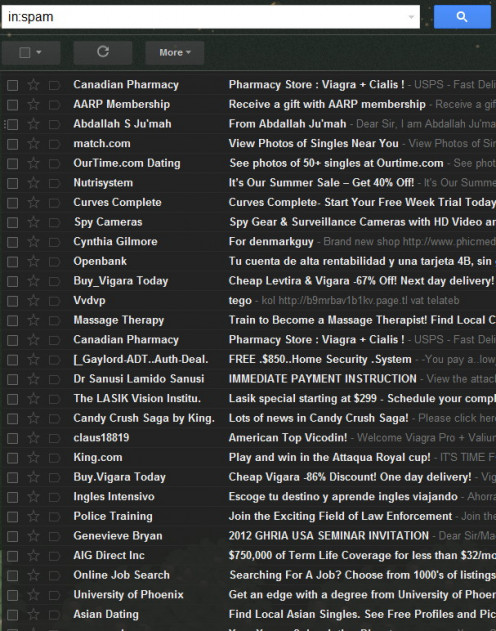- HubPages»
- Books, Literature, and Writing»
- Commercial & Creative Writing»
- Making Money as a Writer
The Online Writer: Examining Your Motivations for Writing

Does money REALLY "make the world go round?"
Why do you write?
Specifically, why are you a writer on the Internet? What actually motivates you to sit down and write, on a regular basis?
- Do you just write "for the money?"
- Do you write because you want to share useful information?
- Do you write because you feel "compelled?"
- Do you write simply because you enjoy it?
- Do you write because you are an expert, on a particular topic?
- Do you write for yourself? Or do you write for others?
- Who are you trying to impress... and why?
I get a lot of email-- out of the blue-- over and above the usual flood of spam that arrives every day. The other day, I got an email from a random stranger on the web who had read one of my articles about writing. It was a piece in which I specifically focused on the importance of staying true to oneself by writing about a particular field of expertise and building a following. I had also been rather critical of so-called "content farming" in which people write flimsy "articles" that mostly contain keywords and boilerplate text but very little real information.
She actually took me to task a bit, not quite going as far as to call me "delusional," but fairly boldly stating that "99% of people writing on the Internet are only in it for the money," and that I was just "wasting my time," by approaching my writing the way I do. She concluded by saying that "nobody has the time" to spend to build a real following, nor does anyone have the time to read in-depth articles.
One of my favorite books about writing... from my personal library

Not so Fast!
Of course, I respectfully disagree! I read lots of in-depth articles online, and-- in fact-- "thin" so-called SEO optimized articles annoy me so much I not only immediately click off the page, causing what web marketing gurus call a "bounce," but also make a mental note of the writer's name so I won't ever waste my time following another link to their work.
I also use my own writing online as a means continue developing my "true voice" in writing-- this site happens to be a place where I can do that. As such, the "money" aspects of an article isn't my primary motivator.
However, my correspondent's words did get me to thinking a bit about what motivates people, especially people in the more artistic fields-- writers, visual artists, performers, poets, etc. It also reminded me of free-lance and technical writing assignments I have acceped in the past but ended up wanting to drop because part of the assignment read: "There are 12 keywords that must be used 40 times in the first three paragraphs," or something along those lines.
Now, I can appreciate that there's a time and a place for the "write to order" format-- and that it's definitely beneficial to pay at least minimal attention to proper keywording of web articles-- but I also find it rather sad when so much focus is placed on "formatting" that actual content is almost completely neglected.
It feels like "putting the cart before the horse," to me.
These days there is much talk about "information overload," and researchers tell us that the sheer volume of inputs we are exposed to on a daily basis-- through radio, TV, Internet, print-- is growing at an exponential rate. What makes me sad is the fact that so much of this information flood comes in the form of stilted and virtually auto-generated prose that's almost unreadable and certainly doesn't add anything useful to our collective knowledge.
But it makes money.

Have online writing sites rewarded the "wrong" thing?
Maybe part of the problem is that the "rewards" for writing online really don't favor writers of quality content so much as people who have an understanding of how to "game" the system. I read posts on ostensible "writers" forums, and most of the discussion seems to be centered around "how to get 20,000 hits to my article" carried on by people who-- from a quality standpoint-- couldn't write their way out of a paper bag if their life depended on it.
Certainly, Google's "Panda," "Penguin" and other initiatives have reduced this type of focus, but we're still a long way from being able to purely focus on "the content," rather than the technical aspects of "getting read."
Back "in another life" I wrote for the entrepreneurial press-- specifically home businesses and income opportunities-- and that field also seemed to attract only a few genuine business people, along with a plethora of "get rich quick" seekers. The "inside joke" among the people in the know was, of course, that neither systems nor programs (designed to make money) "work," it is PEOPLE who "work." Yet the vast majority of participants were basically seeking money for nothing.
A more practical approach

People don't WANT the Truth
I eventually became a bit of a "loathed figure" in that field because I refused to write 300 word "fluff" pieces praising the wonders of harebrained schemes so dumb a six-year old could determine they'd never work, choosing instead to spell out for people just HOW much work they would need to put in to ensure long-term success and financial viability.
Sadly, most people would rather cling to an illusion (delusion?) that they could "make $8000 a month with almost no work!" rather than work from the basic truth that they can "make $8000 a month after several years of first applying themselves 10.hours a day, 7 days a week."
In realistic terms, the latter is not such a bad deal... doing a gig where you're self employed, working from home and calling your own shots. Problem is, most people have a poor grip on reality... and they don't really want to "work." They want a free ride.
Most authentic writers write because they are passionate about writing. They don't get into the writing business because they are primarily motivated by "making money." Most also realize that whereas you can make a "decent living" through writing, making actual "riches" is a bit like winning the lottery or being that high school basketball player who actually makes it big in the NBA. Very few writers get to be Stephen King or John Grisham. If you're looking to "make some serious money," go to medical or law school... don't become a writer.

What motivates you to write?
When I talk to other writers-- often as part of solopreneurship consulting-- my initial questions tend to be about why a person is writing. What is the motivation? Why do you want to write?
"I love writing," "Because I'm a good writer," or "Because I know a lot of things that are useful to people and I can reach them through writing" are all good reasons to pursue writing-- both for fun and profit.
"Because this hasn't been written before and I want to capitalize on that space in the market" is also a valid reason.
However an answer such as "Because I Want To Make Money Writing Articles At Home" (capitalized to mimic the typical misleading "Important" headlines the entrepreneurial press is so fond of) usually sets my alarm bells off. Why? Because "writing" and "content" are not even part of the discussion.
Don't misunderstand what I am getting at. There's nothing wrong with wanting to make money with your writing!
If you look around "get paid to write" sites like HubPages-- and take the time to find the long-term successful writers who make decent incomes from their articles-- you'll find that they are the ones who turn out consistently high quality articles in a significant volume. As the old saying goes: "Cream rises to the top."
So where's the "problem" with content based on an "as long as I can get someone to click on it once it's OK" philosophy? Answer: It has no staying power. Literally. In several ways.

The ultimate downfall of thin-- or lacking-- content
Most people on the web are looking for information. "Information" can mean a number of different things, ranging from facts for a research paper to self-education to something that's simply entertaining to read. And someone reading your words is-- ultimately-- your customer. Which means your task as a writer is to have "satisfied customers."
Now, those who create "articles" simply to get clicks (i.e. "only in it for the money") may argue that they've succeeded the instant someone lands on their article page. But what have they lost?
For one, that visitor is 99% likely to be a "bounce." Meaning that they will see your "article," determine there's "nothing of value there" and hit the "back" button on their browser.
They will NOT stay and read your other articles.
They will NOT be impressed by your writing, knowledge or expertise and become a follower/subscriber who comes back every time you post something new.
They might even remember your name as someone who "wasted their time," so next time one of your pieces shows up in a search result, they will deliberately AVOID visiting your work.
In the digital domain, you have become "That Shady Car Dealer" who advertises an amazing deal on a new car, but when the customers arrive, you conveniently "don't have that particular model in stock." Is that really who you want to be?
So, you can-- correctly-- argue that you GOT their one click. But guess what? You LOST another potential dozen or more clicks. And that's just money down the toilet. And if you're mostly oriented towards "the money," then that should mean something to you!
If you still doubt what I am saying, consider this: WHY do you think so many stores, airlines and other business have some form of "loyalty program?" They understand the economic worth of having long term clients... not just how to make "the next five cents."








